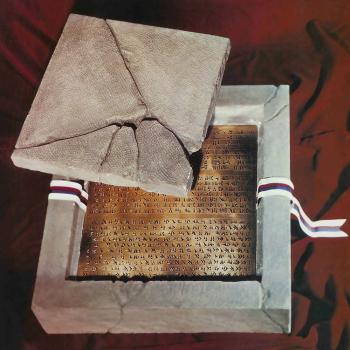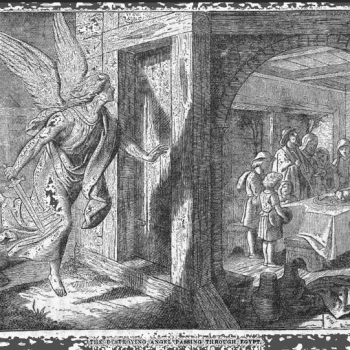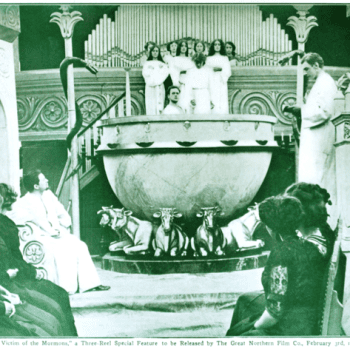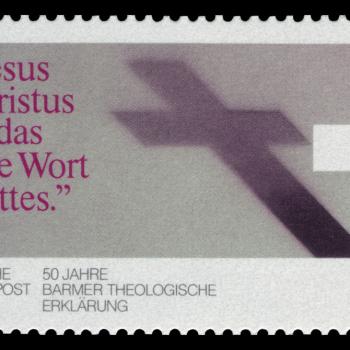So, finally, the long awaited commentary on Justification by Tom Wright. First, I want to say how much I agree with Wright’s central methodological thesis which is: “God has always more light and truth to break forth from his Holy Word. … But if the light comes, there is no tradition so strong, venerable or previously fruitful that it should not be prepared to learn from it.” (p. 249) I have been making that argument for years now in various articles and books and I have been rebuked by evangelical traditionalists as allegedly opening the proverbial Pandora’s Box of heresies and apostasies. Well, my accusers won’t change their minds just because Wright is on my side, but I’m glad to have him there.
So what is all the fuss about? As I read Justification I kept an eye open for THE central point of controversy between Wright and his critics (especially but not only John Piper). It seems to come down to this (although there are admittedly several facets to the “new perspective on Paul” that do not all boil down to this): According to Wright, Paul did not teach an imputation of God’s or Christ’s righteousness to the repenting and believing sinner. Wright especially rejects any notion that Paul taught an imputation of Christ’s “active obedience” (fulfillment of the Torah) to said persons. He affirms, however, an imputation of righteousness by which he means acquittal as in a court of law. For him “justification” means forgiveness and membership in God’s people. He goes to great lengths to deny that he is suggesting any Pelagian or semi-Pelagian merit involved in justification. It is solely by God’s grace through faith. But the “faith” is first and foremost “the faithfulness of Jesus–the perfect covenant partner” and secondarily the believing person’s embrace of Jesus as the Messiah of God resulting in membership in God’s people.
I think Wright’s main point about justification is stated in nutshell form on page 206. The passage is too lengthy to quote here. In brief, Wright says that when God justifies a person he creates for that person a new status of belonging to the Messiah. He does not, Wright argues, infuse virtue into the person (a la Catholic theology) or impute God’s own (or Jesus’ own) righteousness to him or her. Rather, “What the judge has done is to pass judicial sentence on sin, in the faithful death of the Messiah, so that those who belong to the Messiah, though in themselves ‘ungodly’ and without virtue or merit, now find themselves hearing the lawcourt verdict ‘in the right’.” (p. 206)
Now, of course, I cannot boil the entire book’s argument down to this. But it seems to me much, if not most, of the book’s argument is aimed at supporting this thesis. And this is that to which Wright’s critics most strenuously object because they inherit and hold dearly to a Reformed tradition that says God imputes to repentant and believing sinners both the “active and passive obedience” of Christ such that, in God’s sight, the justified person is regarded by God as having fulfilled Torah.
Another interesting point of disagreement has to do with monergism and synergism. On pages 192-193 Wright scoffs at those who, in knee-jerk fashion, “shout ‘synergism’!” whenever someone (like Wright) talks about people making free choices with regard to their own salvation. I will leave it to others to decide whether Wright’s soteriology is more consistent with Arminianism or monergism, but I detect at least echoes of Arminian theology in the long paragraph ending page 192 and beginning page 193. (Please note! I am not “claiming” Wright for the “Arminian side.” I have no idea where he would place himself in this dispute and perhaps he would simply appeal to paradox rather than affirm either synergism or monergism. But his statements about human free choices enabled by grace sound more Arminian than Calvinist to me!)
At this point I am reserving final judgment about Wright’s thesis. I want to give it more study and thought. However, I am whole heartedly in agreement with him that serious biblical study trumps tradition. In such matters tradition gets a vote but never a veto. And I find it difficult to consider this a matter of orthodoxy or heresy. Wright affirms imputed righteousness on account of faith–Christ’s faithfulness and our grasp of that through believing in his death and resurrection. The only difference that I can see between his doctrine of justification and the traditional Reformed doctrine is his denial of imputation of Christ’s active obedience. For him justification is nevertheless a divine declaration about a repentant and believing sinner’s status. It is not infusion of moral virtue. Could it be that, in the overall scheme of evangelical theology (including both Reformed and Wesleyan perspectives on soteriology) this is a tempest in a teapot? Wesley also denied imputation of Christ’s active obedience. But, then, Wright’s critics probably consider Wesley less than fully Protestant.
















